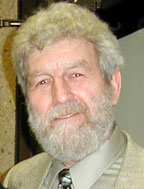 |
 Supreme
Court shapes federal sentencing Supreme
Court shapes federal sentencing
By Chuck Armsbury, Senior Editor
As this Razor Wire issue goes to press the
US Supreme Court opened its new term on October 2, 2000 where
it left off in June. Reports in the NY Times and other national
sources announced that the Court vacated sentences for four narcotics
defendants because the central fact that determined the sentence
-- the quantity of drugs involved -- had been decided by the
judge rather than the jury.
According to reports, the Supreme Court justices
instructed the lower courts to reconsider the sentences in light
of the Supreme Court's ruling on June 26 (in Apprendi v. New
Jersey) declaring that any fact increasing the penalty for
a crime beyond the statutory maximum has to be found by the jury
beyond a reasonable doubt.
 The
four cases the Court acted on apparently shared a similar outline.
For example, one defendant - Bobby Joe Burton (Burton v. United
States, No. 99-9902) - was charged in a federal indictment
with conspiracy to manufacture and distribute crack cocaine,
but the indictment did not specify any quantity. After a federal
jury in Houston found Mr. Burton guilty, the trial judge found
that the amount was "in excess of 99 grams," sufficient
to merit a life sentence despite the maximum of 30 years that
would have otherwise applied, according to an account by Linda
Greenhouse of the NY Times. The
four cases the Court acted on apparently shared a similar outline.
For example, one defendant - Bobby Joe Burton (Burton v. United
States, No. 99-9902) - was charged in a federal indictment
with conspiracy to manufacture and distribute crack cocaine,
but the indictment did not specify any quantity. After a federal
jury in Houston found Mr. Burton guilty, the trial judge found
that the amount was "in excess of 99 grams," sufficient
to merit a life sentence despite the maximum of 30 years that
would have otherwise applied, according to an account by Linda
Greenhouse of the NY Times.
Burton was convicted on multiple counts, with
sentences to run concurrently although the judge had the power
to impose consecutive 30-year sentences. To be re-sentenced,
Mr. Burton has the legal burden, and practical challenge, of
demonstrating to the appeals court not only that his sentence
was erroneous, but that he was actually harmed by the error.
The other cases in which the court vacated sentences were Blue
v. United States, No. 99-6775; Wims v. United States,
No. 99-8958; and Gibson v. United States, No. 99-7351.
Interest in the Apprendi ruling has
prompted a near frenzy of anticipation in federal prisons across
the country. Inmates, reportedly, are chanting (Apprendi, Apprendi!!)
as if salvation is at hand. It's also as if, and hard to swallow,
that the Sixth Amendment has just been re-discovered by the learned
justices of our country's highest court.
Habeas writs by the hundreds are telling district
courts of injustice in sentencing, expecting 2255 relief under
this so-called breakthrough case. Families are raising money
to pay attorneys to file an Apprendi action for an imprisoned
loved one. Paperwork long forgotten gets pulled from beneath
bunks, dusted off, and looked over one more time for that thin
dream of release. A law firm in Cincinnati, reports Mike Montalvo,
is so eager to exploit the confined that it has sent prisoners
forged judicial orders claiming victories won using Apprendi.
Most of our Razor Wire legal correspondents
tell us the same story on Apprendi: Go ahead. FILE your
2255 Motion. Try to do it yourself, pro se. Unless your family
has money to burn, be cautious and practical before asking anyone
to give up hard-earned money to attorneys, the licensed or 'jailhouse'
variety, who pump and pander Apprendi as the 'for sure'
door to your freedom.
Likewise, wise opinion is to not 'hold your
breath'. Almost every informed source believes the Supreme Court
will certainly revisit this fundamental, constitutional issue
(perhaps several times) before its application becomes widespread,
before stubborn, lower courts begin to follow the Fifth and Sixth
Amendment spirit enlivened by Apprendi and these most
recent Supreme Court decisions.
See Law Library in this issue; (CLICK
HERE), for Mike Montalvo's discussion of the Apprendi
case in light of other court rulings and essential procedures
for getting your case back in court.)

|

